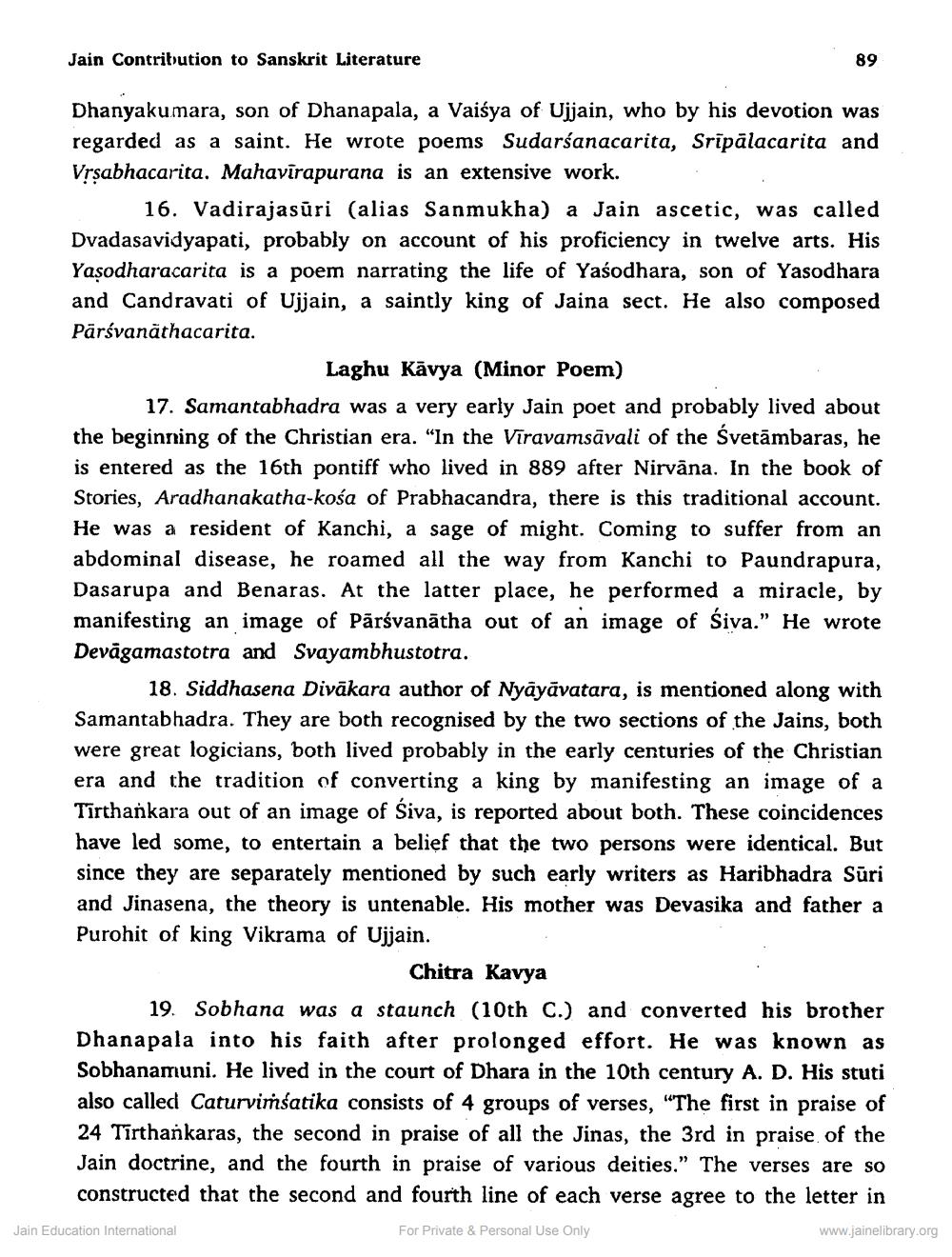________________
Jain Contribution to Sanskrit Literature
89
Dhanyakumara, son of Dhanapala, a Vaiśya of Ujjain, who by his devotion was regarded as a saint. He wrote poems Sudarsanacarita, Sripālacarita and Vrsabhacarita. Mahavīrapurana is an extensive work.
16. Vadirajasūri (alias Sanmukha) a Jain ascetic, was called Dvadasavidyapati, probably on account of his proficiency in twelve arts. His Yaşodharacarita is a poem narrating the life of Yaśodhara, son of Yasodhara and Candravati of Ujjain, a saintly king of Jaina sect. He also composed Pārsvanathacarita.
Laghu Kāvya (Minor Poem) 17. Samantabhadra was a very early Jain poet and probably lived about the beginning of the Christian era. "In the Viravamsāvali of the Svetāmbaras, he is entered as the 16th pontiff who lived in 889 after Nirvana. In the book of Stories, Aradhanakatha-kośa of Prabhacandra, there is this traditional account. He was a resident of Kanchi, a sage of might. Coming to suffer from an abdominal disease, he roamed all the way from Kanchi to Paundrapura, Dasarupa and Benaras. At the latter place, he performed a miracle, by manifesting an image of Pārsvanātha out of an image of Siva.” He wrote Devāgamastotra and Svayambhustotra.
18. Siddhasena Divākara author of Nyāyāvatara, is mentioned along with Samantabhadra. They are both recognised by the two sections of the Jains, both were great logicians, both lived probably in the early centuries of the Christian era and the tradition of converting a king by manifesting an image of a Tirthankara out of an image of Siva, is reported about both. These coincidences have led some, to entertain a belief that the two persons were identical. But since they are separately mentioned by such early writers as Haribhadra Sūri and Jinasena, the theory is untenable. His mother was Devasika and father a Purohit of king Vikrama of Ujjain.
Chitra Kavya 19. Sobhana was a staunch (10th C.) and converted his brother Dhanapala into his faith after prolonged effort. He was known as Sobhanamuni. He lived in the court of Dhara in the 10th century A. D. His stuti also called Caturvimšatika consists of 4 groups of verses, "The first in praise of 24 Tirthankaras, the second in praise of all the Jinas, the 3rd in praise of the Jain doctrine, and the fourth in praise of various deities.” The verses are so constructed that the second and fourth line of each verse agree to the letter in
Jain Education International
For Private & Personal Use Only
www.jainelibrary.org




